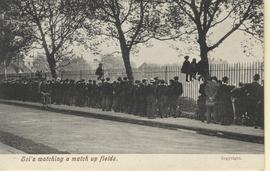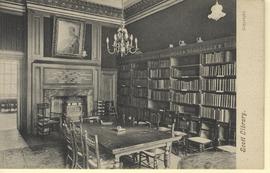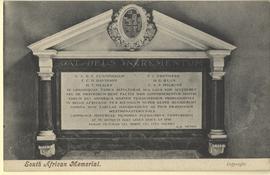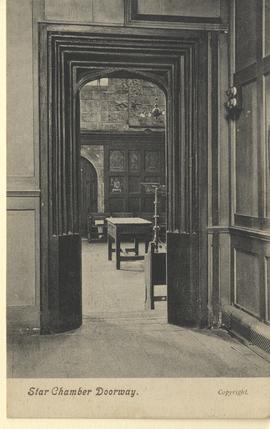When he arrived at Westminster he felt the school needed to rediscover its purpose and reshape itself for the 21st century. [3:42] His aim in the first year was to consult people over the future of the school. [4:00] His previous school had been Clifton School in Bristol. Every school is different, and when you begin at a new school you must understand its ethos. [5:08] At Clifton he had learnt how important it was to have co-education. Clifton had been in a difficult financial state when he first arrived. He had learnt how important it is for the Headmaster to keep on top of finances. [6:25] He had been a housemaster and head of a large department at Eton. Before then he had been a university academic. Westminster is like a small university in some ways. [7:30] Westminster was originally ahead of other schools in co-education, but now can be seen as a dinosaur. Believes that the Westminster model is the right one. [9:18] Doubts about excluding girls from the years below. [10:34] He decided to change the composition and numbers in the sixth form, so that Westminster no longer felt like a boys’ school that happened to have some girls in it. Decided on 1/3 girls, 2/3 boys in 6th form, with minimum of ¼ boarders. [12:23] School increased overall to 740, to allow for more girls at 6th form. Introduced a head girl. [13:19] The number of women in the Common Room has also increased. [14:08] The greater number of newcomers in the sixth form helps the boys who are already pupils to see the sixth form as a new beginning. [14:35] Balancing money spent on social mobility and money spent improving facilities. [15:53] The importance of fundraising. [17:55] The choice between fundraising for a very large endowment or raising money every year to plough straight into financial assistance. Chose the latter. [19:08] Harris Westminster Academy. Westminster needs to look outwards more. [20:23] Westminster summer school. Inspiring pupils to go into higher education. [21:55] Media portrayal of Westminster. Most schools try to get into the press. At Westminster, it’s the reverse. Many calls from the press, which are not always relevant. Need a good relationship with journalists. [25:47] The impact of social media. Pupils need to be educated on how to use it responsibly. Can be a very positive thing. [27:10] Relationships should not just be virtual. [27:48] When first came to Westminster pupils had Walkmans and weren’t talking to each other. Needs to be a community in the school. The development of a parenting forum, where parents can discuss their concerns. [29:44] A moral education should be central to the school. Nurturing individual talent is important, but pupils must also have a sense of social responsibility. [32:38] Relationship between the School and the Abbey was re-assessed during the preparations for the 450th anniversary of the foundation of the school in 2010. Began working together more. Morality and spirituality became more central to the school. [35:30] Introduction of civic engagement, for every pupil to participate in, rather than community service, which was for pupils who weren’t interested in sports. [39:16] Many Westminster pupils will go on to be leaders, and leaders must be socially responsible. [40:17] Traditions. Latin Prayers. Deciding either to abolish it or take it seriously. [43:46] When he began, the Governors had been concerned that Westminster had lost some of its style. The importance of the Archives. [45:47] The introduction of girls’ uniform. It had previously made it appear as though girls were just an add-on. [48:48] Pupils have more generosity of spirit now, and are less brittle and competitive. [53:31] The importance of the Monitors and Head Boy and Girl. [55:17] The Common Room previously hadn’t had much of a common purpose. He tried to involve more staff in the development-planning of the school. [57:35] The Headmaster needs to protect teachers from management, legislation, financial matters, and so on. Their sacred task is the teacher / pupil relationship.




